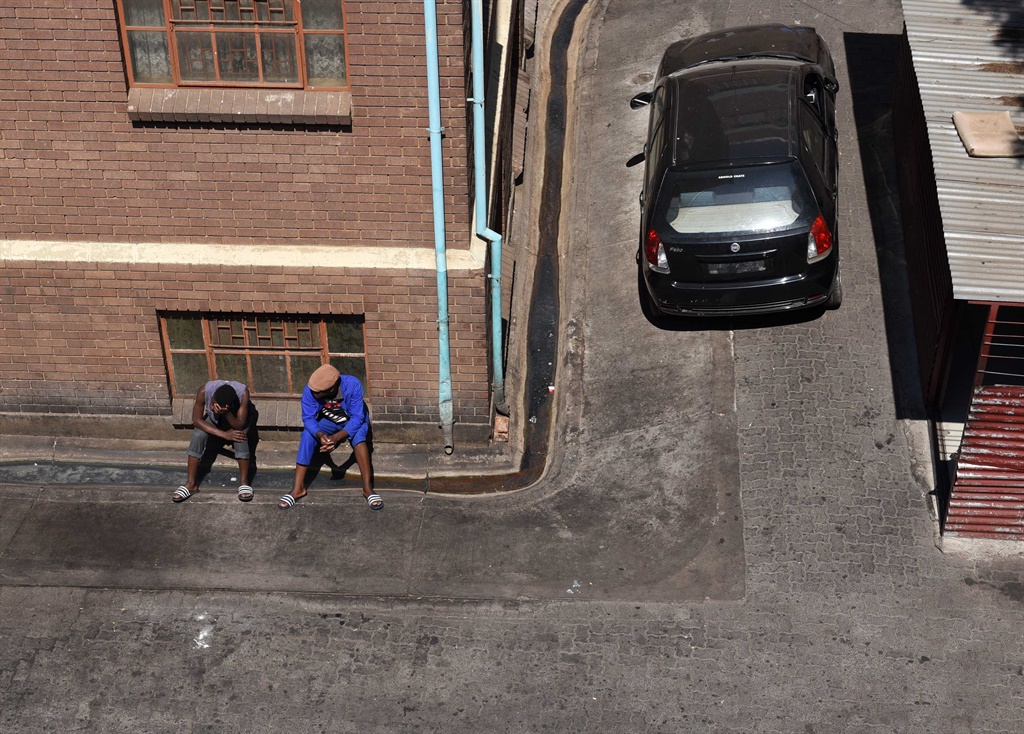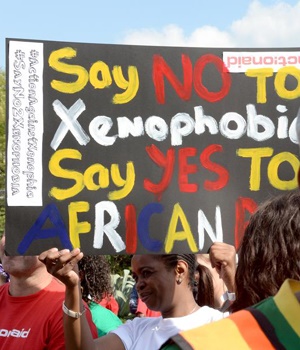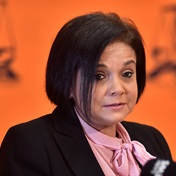
Magashule says the proliferation of drugs and the recent violence against foreign nationals could be the work of imperialists and colonialists wanting to sow rifts between SA and the rest of the continent
The ANC has adopted a hands-on approach in an effort to quell the violence that has hit parts of Gauteng.
But the governing party has also made it clear that it is focusing on the 2021 municipal elections.
This weekend, as part of a drive to activate its branches, the ANC top brass met party members to discuss how to respond to the unrest and to redirect the current narrative that explains the mayhem as being a result of xenophobia.
Instead, the party has blamed the violence on criminal elements, on the scramble for scarce economic resources and on attempts by “third forces” to destabilise the country.
Addressing affected communities in Pretoria on Friday, President Cyril Ramaphosa reminded the residents that their biggest mistake was not voting for the ANC to take over the Tshwane municipality.
“This municipality is under the administration of the DA. So, the next time you vote, remember to vote for the ANC. Vote right so we can attend to such matters,” he said.
This statement irked the EFF, who slammed Ramaphosa for being irresponsible and opportunistic.
However, a member of Ramaphosa’s Cabinet said that the ANC was first and foremost a political party, and it was campaigning to retain power.
ANC secretary-general Ace Magashule, who is set to lead the party’s high-profile intervention to quell the public unrest against foreign nationals in Tshwane, warned on Saturday of “the possible role of imperialist and colonial forces with a motive to isolate South Africans from the rest of the African continent”, saying they “could not be ignored”.
Magashule and his deputy, Jessie Duarte, are expected to lead consultations with community leaders in the capital city, after a recent altercation between taxi drivers and foreign nationals.
The drivers targeted foreign nationals after taxi driver Jabulani Baloyi was gunned down last month in Pretoria, allegedly by a drug dealer.
Violent protests erupted as the taxi drivers accused foreign nationals of dealing in drugs.
Magashule was speaking on Saturday on the sidelines of a meeting with ANC branch leaders in Randfontein, west of Johannesburg, where issues relating to xenophobia and gender-based violence were being discussed.
He said the proliferation of drugs and the resultant backlash of public violence against foreign nationals indicated that South Africa was being targeted by counter-revolutionary third forces.
“When imperialist and colonialist forces want to take you back, you would see a lot of drugs in the country. You must know [this] and become vigilant because it is a wake-up call,” he said.
“The Cubans have warned us many times that once you see a proliferation of drugs, you must know that there are people who want to seize your country.”
Magashule said that the country’s enemies were also trying to cause fights between Nigeria and South Africa, the two biggest economies on the continent.
“You deal with these two, cause divisions, then Africa is gone. So let us stay vigilant,” he said, adding that citizens who were preaching tribalism and ethnicity did not belong in South Africa.
“Those who think that Africans are not supposed to be here are making a big mistake.”
But, he added, “whether you are a foreigner or not, if you commit a crime, the law of the country must be respected and law enforcement agencies must deal with those drug peddlers and druglords – whether they are South Africans, Zimbabweans, Nigerians or any other nationality”.
On Friday, Ramaphosa said Magashule and Duarte would be tasked with engaging political heads in Pretoria, as well as the police leadership, in an effort to resolve the drug epidemic in the province.
The president said the governing party had also been alerted that law enforcement officials were working hand-in-hand with drug dealers in the area.
“Some of our police are partaking in illegal acts. Not all of them, but some. We will act and investigate why and how this is happening,” Ramaphosa said.
ANC national chair Gwede Mantashe told the media on Friday that he disagreed with people who were framing the ongoing public violence as acts of xenophobia.
“My own view is that the cause of that violence needs to be analysed carefully. I am one of the people who does not believe that when you say [it’s] xenophobia, you are doing a comprehensive analysis,” Mantashe said.
“I think it is a lazy analysis when you just limit it to xenophobia – without looking at the context and the scramble for resources.
“It cannot not be that all of sudden South Africans woke up and suddenly they hate everybody,” he said, adding that foreign nationals had for years been part of communities countrywide.
“We have never hated them, and if you think that we are just angry – without looking into the scarcity of resources and the scramble for those resources – and that people are getting irritated by the fact that they think their space is being invaded, that is a lazy analysis.”
Responding to a string of enquiries over Ramaphosa’s lack of visibility during the unrest, Mantashe said the expectation that the president should be first on the scene whenever a conflict arose, was unreasonable.
He said that even some ANC members held this view, and would often call the party’s headquarters at Luthuli House suggesting that Ramaphosa should take more visible action.
“When there is conflict in society, even ANC people phone us and say: ‘Ramaphosa must come out and must go to areas where there is conflict.’ When they say that, I tell them that once you have a president who is a firefighter, then you will have more problems.”
Mantashe added: “There must be infrastructure in government to deal with violence in Tshwane, Johannesburg and KwaZulu-Natal. But if you want a president who has blue lights and runs down to Tshwane and Johannesburg, then you are going to commit mistakes.”
 | ||||||||||||||||||||||||||
Get in touchCity Press | ||||||||||||||||||||||||||
| ||||||||||||||||||||||||||
| Rise above the clutter | Choose your news | City Press in your inbox | ||||||||||||||||||||||||||
| City Press is an agenda-setting South African news brand that publishes across platforms. Its flagship print edition is distributed on a Sunday. |




 Publications
Publications
 Partners
Partners










